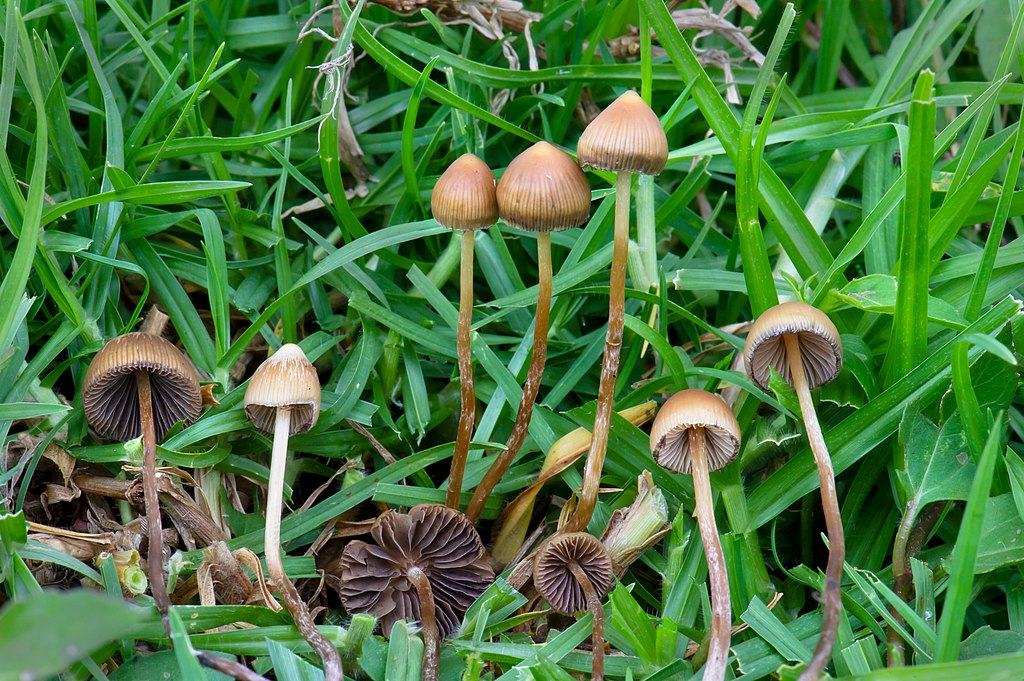In Australia, medical psilocybin, found in 'magic mushrooms,' and MDMA, known as ecstasy, have gained authorisation for treating depression and PTSD.
These psychedelic drugs show promise in promoting brain plasticity and enabling new connections between neurons. Previously stigmatised due to misconceptions and potential risks, recent scientific research has led to a reconsideration of their therapeutic potential.
However, despite advances in Australia and the United States, Europe is falling behind in exploring the therapeutic potential of psychedelics for mental health disorders, and policymakers and experts have called on the European Medicines Agency (EMA) to take more proactive steps.
A group of lawmakers from the European Parliament recently expressed their concern in a letter to EMA's head, Emer Cooke, pointing out that while medical interest in psychedelic-assisted therapy is gaining momentum, countries like the U.S. and Australia are making significant regulatory progress in this area, leaving Europe at a disadvantage.
The MEPs urged the EMA to play a more active role in addressing the challenges associated with adopting psychedelic therapies in Europe. This includes understanding the risks compared to other medicines for similar conditions. They proposed that the EMA prepare a report, organise workshops, and collaborate more closely with the European Monitoring Centre for Drugs and Drug Addiction (EMCDDA).
Despite the growing momentum for psychedelics among lawmakers, a significant challenge lies in the fact that the EMA regulates substances rather than therapies. Additionally, some mental health experts have highlighted the challenges in using psychedelics as a safe and effective treatment option in Europe.
Tripping over hurdles
One major hurdle is the classification of psychedelics like MDMA, psilocybin, and LSD as "Schedule 1" drugs by the United Nations. This classification restricts their use to limited medical or scientific purposes due to perceived high risk of abuse and little therapeutic value. The MEPs called for a reform of the international drug-scheduling system to make psychedelics with medicinal potential more accessible for scientists and patients before regulatory approval.
The argument in support of using psychedelics put forward by proponents is intriguing. Studies suggest that controlled doses of LSD, psilocybin, MDMA, and ketamine may offer effective treatments for psychological disorders. Although there are risks of challenging experiences, these can be managed in controlled settings. Many individuals suffering from treatment-resistant depression, PTSD, and extreme anxiety have shown significant improvements through psychedelic-assisted therapy.
Research on psychedelics is ongoing, and though sample sizes are often small, the results are promising. In 2016, researchers at Imperial College London administered psilocybin to twelve patients suffering from depression, for whom no other treatment had helped. A week later, eight of them were relieved of their dark thoughts, experiencing a reprieve for the first time in years.
During the same year, Johns Hopkins University conducted an experiment with 24 participants who had been unsuccessfully taking antidepressants for years. Among the patients treated with a high dose of psilocybin, about two-thirds showed significant recovery immediately after treatment. Four weeks later, approximately half of the patients experienced a significant decrease in their depressive symptoms, all from a single use.
Ketamine, initially used as an anaesthetic and later as an antidepressant, has shown success in treating treatment-resistant major depression. While its impact on other disorders is yet to be fully understood, the use of ketamine in controlled medical settings is increasing.
Tread lightly or psychedelic hope?
Despite the potential benefits of psychedelics, their usage must be cautious due to potential adverse effects and drug interactions, especially for individuals with comorbidities. However, as research progresses, these risks can be managed, and psychedelics may become an additional therapy option for various conditions.
Psychedelics appear to cause a reset in the brain during a trip, forming more and different connections and making the brain more plastic, allowing for less rigid thinking. In recent years, palliative care and addiction care have also looked hopefully at the potential beneficial effects of mind-altering substances. Terminally ill patients have reported a reduction in their fear of death, heavily addicted individuals have been able to leave their harmful habits, and chronic smokers have quit smoking altogether.
While interest is growing, there remain numerous prejudices about psychedelics, with beliefs that they can lead to madness, brain damage, or even alter DNA. Stories from the 1960s spread fear, with accounts of individuals going blind from staring into the sun or attempting dangerous acts during a "bad trip."
Mathieu Seynaeve, a Belgian psychiatrist involved in clinical trials with psychedelics, recently expressed frustration at the limitations of his practice in Belgium due to the illegality of psychedelics in an interview with De Morgen. In the article he said he believes that psychedelic therapy could potentially offer new hope to patients who have been on antidepressants for years without relief.
He noted that some Belgian patients seek treatment in the Netherlands, where several retreat centres offer psychedelic experiences, but highlighted the importance of proper preparation, support, and aftercare during such treatments.
Meanwhile, in the same article in De Morgen, Michiel van Elk, a neuroscientist from Leiden University, said he had initially embraced the potential of psychedelics but became more critical as his research progressed. He warned against overenthusiasm and emphasised the need for more robust scientific evidence in the field.

